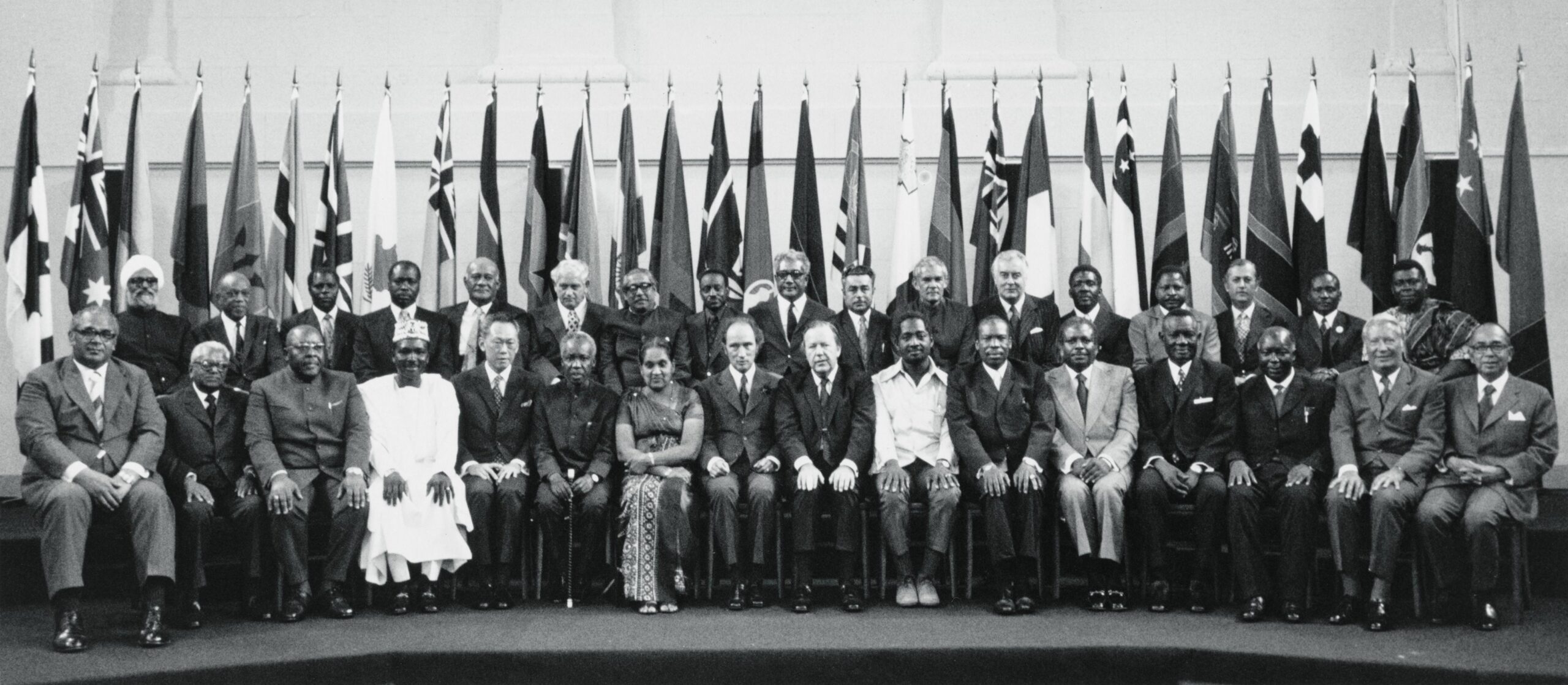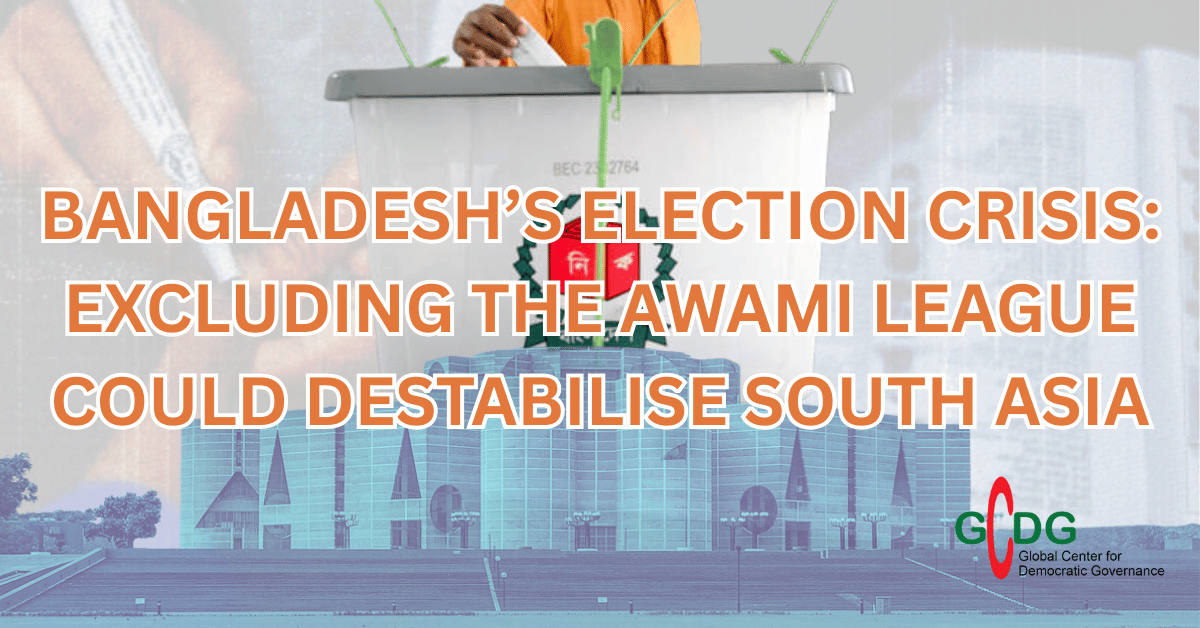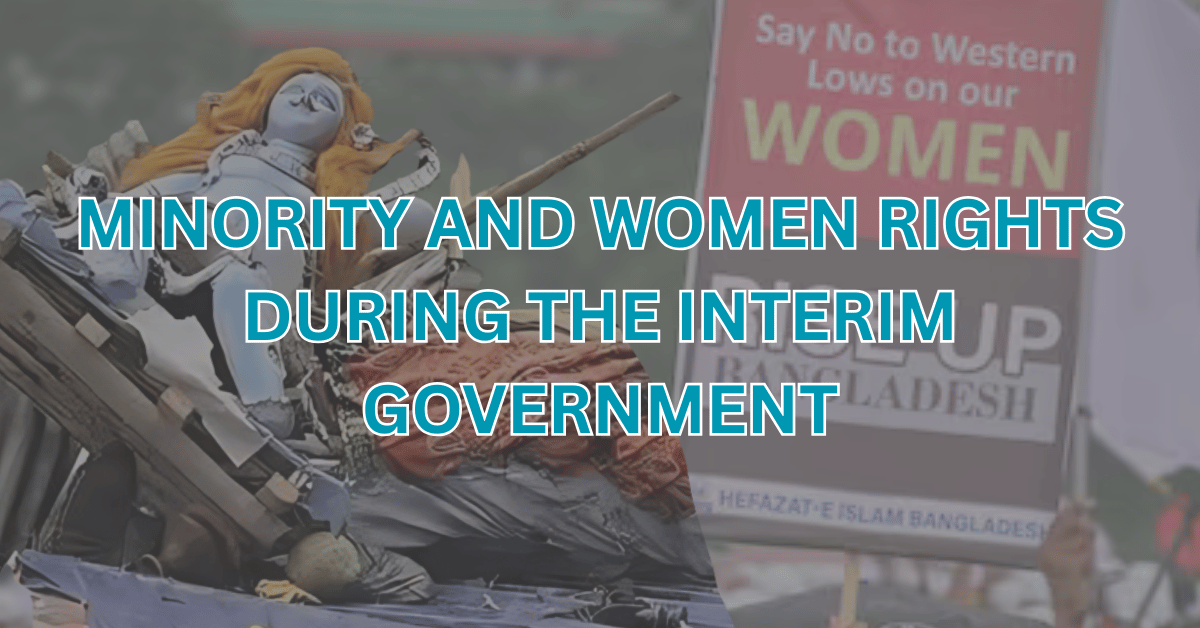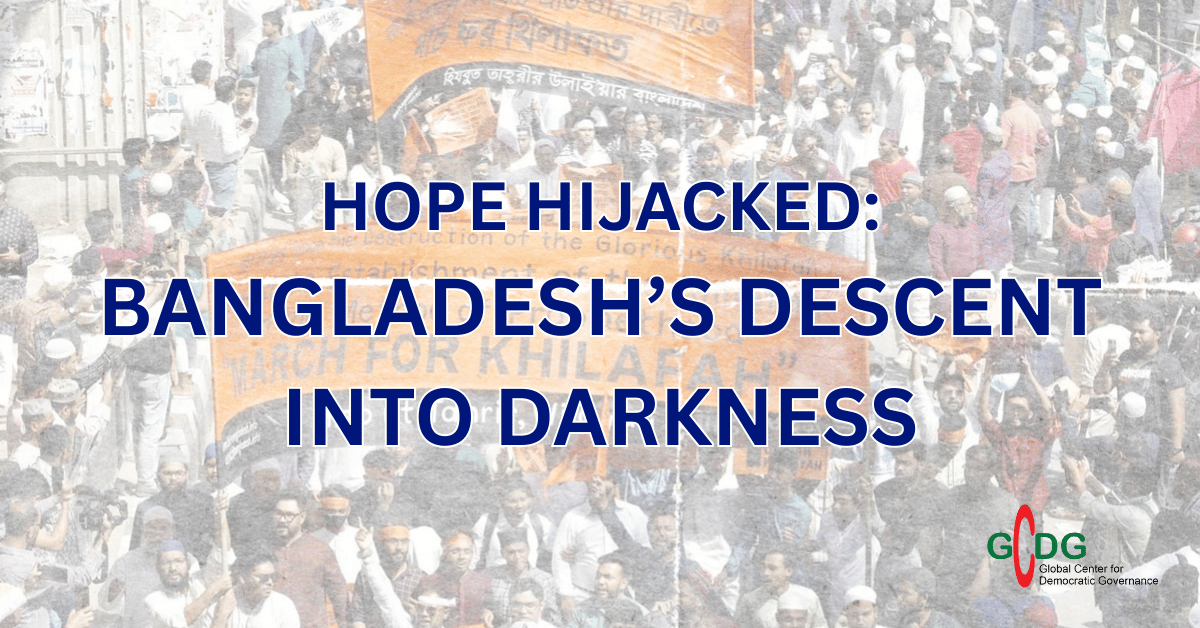The interim government’s ban on Bangladesh’s largest political party undermines democracy, empowers extremists, and threatens…

Recounting The Birth of Bangladesh: A Canadian Perspective
Rabiul Alam
The history of the people and the land, which is Bangladesh today, is unique and perhaps strange too. The freedom enjoyed by this land and her people was very short compared to the much longer period of occupation and subjugation. After the 55th anniversary of the independence of Bangladesh this year, the nation is again at the crossroads, waking up to a new reality, an old challenge. Prolonged political struggle, blood-drenched war, epochal sacrifices of millions earned us freedom – is that history written on the sands!
March 1971
After the Military regime headed by General Yahya Khan of Pakistan invalidated the election results won by the Bengali population living in East Pakistan with a majority mandate, on March 25, 1971, in the darkness of the night, the barbaric military campaign under the banner ‘Operation Searchlight’ ensued, triggering shock waves around the world. The regime declared martial law, used military tanks and armoured vehicles to massacre thousands of Dhaka University students, prominent academics and intelligentsia and even homeless day labourers sleeping on the footpath of Dhaka city. In the wee hours of March 26, Bangabandhu Sheikh Mujibur Rahman was picked up by the military from his residence at Road – 32, Dhanmondi, Dhaka and taken to West Pakistan, charged with treason! The forces of evil, the Army fanned out across the rural hinterland, burning houses/property and massacring men, women, and children on sight.
News blackout made it impossible to find out the fate of our family in Dhaka and outlying areas in East Pakistan. Our main source of news was the BBC from London, UK. In Canada, news of the ominous events in East Pakistan was trickling in the national news media, the Toronto Star, Globe and Mail and CBC.
On March 26, 1971, in Toronto, about 20-25 Bengalis from East Pakistan assembled in front of the Pakistan consulate to protest the military atrocities and massacre. Media interest was lukewarm. The Pakistan High Commission and Pakistani Associations were the main source of information for the Canadians.
On March 27, Toronto the prestigious Canadian newspaper ‘The Globe and Mail’ interviewed me about the Dhaka massacre, in particular the safety of our family and published it on the following day.
There was no unanimity in the East Pakistani (Bangladeshi)group. Some were skeptical about the reality of the independence movement, the motives of Bangabandhu Sheikh Mujibur Rahman and were unsure about the extent of massacres as reported. A few students on scholarships wanted to be neutral. Some were openly sympathetic to the solidarity of Pakistan; some wanted to stay in the background for the safety of their family back home, and the fear of job security in Canada.
The daily news releases and vocal media campaign from the Pakistan High Commission were downplaying news about the massacres and branding the students, professionals and political leaders in East Pakistan as miscreants, outlaws, apostates, Indian and foreign agents and misguided individuals out to break up Pakistan. We were outnumbered by Pakistanis and their sympathizers about 15-1 in Toronto.
The Canadian Government and the public were slow in reaction to the reality of the suppression of democracy, massacres of unarmed citizens and the brutal kidnapping of the majority party leader & would-be Prime Minister, Bangabandhu Sheikh. Mujibur Rahman for a treason trial in the military court.
The military repressions in East Pakistan were unfolding on the heels of the Quebec separatist movement, Canada’s worst national crisis since the confederation was born. The Quebec Provincial minister, Pierre LaPorte, was kidnapped and murdered, and a British consul from Montreal was kidnapped. The separatists’ ferocity forced the Bourassa government of Quebec to operate out of a bunker for several months. Prime Minister Pierre Trudeau invoked the infamous War Measures Act, the first time in Canadian history, to save the country from breaking up.
The government and, to a large degree, Canadians were less sympathetic to the breakup of Pakistan as sought by the Bengali nationalists in East Pakistan. Canada’s position was largely influenced by the fear of separating Quebec from Canada. Canada was promoting a compromise solution between East and West Pakistan by releasing Sheikh Mujibur Rahman and thereby keeping the Commonwealth family in harmony.
Over the next several weeks, an action committee of committed Bengali individuals from Toronto, Ottawa, Hamilton, London (Ontario) and Montreal coalesced an organized campaign on three fronts:
- Establish a network with well-known and respected mainstream Canadians to help convey our democratic aspirations to Canadians.
- Advocate for the plight of millions of refugees requiring food and shelter urgently, and to stop any arms supplies to the military to halt repression and genocidal activities inside East Pakistan.
- Secure the immediate release of Bangabandhu Sk. Mujibur Rahman, who was facing execution by a military tribunal in West Pakistan.
I met the CBC anchor, Mr. Stanley Burke, through the Globe and Mail. Over time, he became my mentor and a father figure for our cause. I met him on many occasions, visited his residence seeking advice and guidance on how to develop awareness of our struggle for survival as a people. He was always there when we needed him. Mr. Burke arranged a private session at his residence with the MP. Barney Danson, Parliamentary Secretary to the Prime Minister, later became Minister of Defence. We forcefully highlighted the plight of refugees and, urgent need for government humanitarian aid. Also urged his government to stop the shipment of arms to Pakistan. Mr. Danson undertook to speak to Mitchell Sharp, External Affairs Minister and guided us to contact Mr. Sharp’s office in Ottawa. Four members of the action committee were in attendance.
Mr. Burke introduced me to Reverend Scott, the Church of Anglican Primate of Canada and Jack Shea, the head of Oxfam Canada, who became the consistent and most influential advocate for urgent aid for Bangladeshi (East Pakistani) refugees in India. These two organizations were the consistent and leading advocates to highlight the sufferings of trapped Bengalis under continued military repression inside East Pakistan. Reverend Scott organized an interfaith campaign for humanitarian aid and prayers at Sunday services in all church denominations for the sufferings of Bengalis, seeking donations for the helpless refugees and starved Bangladeshis inside East Pakistan. Reverend Scott, a father figure of immense stature, now deceased, will continue to illuminate Canadian humanity.
April 1971
By April, we embarked on a coherent strategy of rebutting and challenging every media release and misinformation by the Pakistani High Commission. A volunteer team was formed of mainstream Canadians, led by Mrs. Madeline Alam. The volunteers also undertook to speak to community groups, churches and students at school. Letter to the Editor, articles and community news were used to convey our messages to a larger group of Canadians through mainstream popular news media like the Toronto Star, the Globe and Mail, the Toronto Sun and other print media and community newsletters published from Ottawa and Montreal. Voices from Canadians were proving to have positive effects. Letters can be found in the archives of the respective papers.
Stanley Burke’s article “Should Citizens step into the conflict in Pakistan,” was published in the Toronto Star in April. 28 challenged the Canadian conscience on humanity and asked how its traditional role can play for useful purpose in this dispute. The debate resonated across Canada, and questions were raised at the House of Commons, halls of community groups, and churches. It served as a discussion point for our cause.
May 1971
By May, we considerably expanded political networks and began to get traction on refugees and humanitarian issues, and signed a joint fundraising agreement with the help of Oxfam Canada, India-Canada Association and Church groups. The coordinated effort gained momentum for refugee support aids, the government. of Canada, the Red Cross and other NGOs joined in. Millions were raised and channelled through the aid delivery organizations. My personal focus was on political contacts and targeted individuals, while other members took to academics, NGO institutions and community leaders on fundraising, and donations of material relief for the refugees. By the end of May, our contacts with refugee camps and freedom fighters’ logistical groups were established, particularly with Sheikh Fazlul Huq Mani and Aminul Huq Badsha and ABM Musa. The Oxfam, UNICEF and other NGOs were setting up their supply logistics in the area. Oxfam helped maintain communication channels with refugee camps and families. Our mainstream contacts were fact-checking and responding to the Pakistani propaganda machine.
My contacts in Toronto included Andrew Breitkreuz, MP and the foreign affairs critic of the NDP, Stephen Lewis, leader of the opposition to the Ontario Provincial Government, Darcy McKew, MLA and provincial cabinet minister and David Lewis, leader of the NDP, among notable sympathizers.
Dr. Rehman Sobhan, the roving ambassador for Bangladesh, was in Toronto on a scheduled trip to Canada to promote the official version of the Bangladesh government in exile. On May 1, 1971, Pakistanis tried to disrupt a community meeting with Dr. Sobhan, which resulted in some minor scuffles, but they failed.
May 5, Stanley Burke hosted a well-publicized press conference, hosting Dr. Sobhan at the national press gallery in Ottawa. Details of Dr.Sobhan’s remarks were published by the Canadian National media. The following day, the Leader of Opposition, Hon. Robert Stanfield, and the NDP critic Andrew Brewin raised the Bangladesh issue in the House of Commons and pressed Mitchell Sharp, Foreign Minister, to state Canada’s commitment to humanitarian aid and whether it was reaching the victims directly and expressed concern about the detention of Sheikh Mujibur Rahman. Dr. Sobhan was accorded a confidential meeting with Mitchell’s Parliamentary secretary the following day.
The Following week, I, along with three Action Committee members from Ottawa, met with the principal assistant of Foreign Minister Mitchell Sharp to follow up on Dr. Sobhan’s press conference.
In May, we were alerted by our contacts in TUC (Trade Union Congress) in NY that an ocean vessel named Padma just loaded an arms consignment for Pakistan, was on the way to Montreal to pick up additional cargo destined for Pakistan. Our compatriots in Montreal and the longshore men’s union were alerted about the military cargo, which may be used against our people in Bangladesh, then East Pakistan. I convened a media briefing in Toronto, sought an assurance from the Canadian government that no Canadian arms would be added to the US supply and urged for an arms embargo. An article in the Toronto Star triggered a flurry of media releases from the US State Department concerning the legality of that arms cargo and clarification by Canadian authorities of their role in the House of Commons. Our Montreal compatriots worked tirelessly to convince the longshore union to stop loading Canadian cargo and to delay Padma until Canada’s position is clarified.
July 1971
By July, we were informed by the leaders of refugee camps and the logistic coordinators about some success in engaging the Pakistani army inside East Pakistan and the flow of relief supplies to the camps. We were told to maintain our focus on direct aid for the refugees and continue highlighting the military repression and humanitarian issues inside East Pakistan.
August 1971
In August, we organized a demonstration against Hamidur Rahman Chowdhury at the Pakistan Day celebration in Toronto. He was on a tour justifying the causes leading to martial law and the imprisonment of Sheikh Mujibur Rahman. There were about 30-40 demonstrators, including some from West Bengal. Scuffles and skirmishes resulted in some people receiving minor injuries, including our 11-month-old daughter.
“On August 19-21, Jack Shea of Oxfam Canada, in concert with Stanley Burke, spearheaded an International Conference on catastrophic humanitarian issues in East Pakistan at the University of Toronto Campus, chaired by Dr. Hugh Kingsleyside, director general of UN Technical Assistance. The high-profile conference brought together about 30 distinguished parliamentarians, Senators, professionals, Nobel laureates /academics, churchmen, military experts and social workers from around the world.”
Notable dignitaries included: Senate Foreign Relations committee chair Frank Church designate, retired Indian Army Chief of Staff General R N Chowdhury, Dr.Horeman Dahl of Ford Foundation, Dr. John Rohde and Dr. Cornela Rhode of Harvard Uni, Dr. Henna Pavenek, Dr Gustav Pavenek, Dr.Stanley Walport of California University and Homer Jack secretary of Inter Faith Religion for Peace, Canadian notables included. Rev. Scott, Stanley Burke, Barney Danson, Andrew Brewin, three Bengalis, including Mr.Siddique from Washington and myself.
It was an open forum where Pakistani officials were also invited; unfortunately, none participated. The conference was held at a time when world leaders were largely indifferent despite repeated warnings of the UN Secretary General of the staggering cost of refugee operations left as a burden for India, serious concern about the reports of certainty of famine in East Pakistan by October and General Yahya Khan’s determined action on a secret trial of Sheikh Mujibur Rahman.
“The conference resulted in a now-famous ‘The Toronto Declaration’. The thrust of this Declaration was to ask all concerned people to prevail upon their governments with utmost urgency to urge for both humanitarian and political actions while there is still time”. It included-
- calling for an immediate end to all killing;
- to terminate all military equipment deliveries to Pakistan;
- to suspend all economic aid to Pakistan;
- to channel all possible resources into a massive emergency program for famine relief in East Pakistan by the UN;
- to make a firm, continuing commitment to share the economic burden of supporting refugees in India; and
- to intervene to save the life of Sheikh Mujibur Rahman.
September 1971
The declaration thrust was deliberately non-political to maximize its humanitarian appeal. The Toronto declaration of concern caused waves not only in the minds of Canadians but also in the minds of various world communities and leaders. In the Senate of the US, Senator Frank Church introduced the resolution that transpired out of the Toronto Declaration of Concern obtained unanimous support to print the entire declaration in the Congressional Record of the 92nd Congress, Sept. 14, 1971.
Senator Frank Church encouraged our group to come to Capitol Hill to lobby the Foreign Relations Committee due to meet on the Pakistani crisis. Three available members of the Action committee, including Dr. Huq of Hamilton, were in Washington during the Senate hearing with a productive outcome.
Every national news media outlet in Canada gave full coverage of the declaration and the names of the participants. Out of the ‘Toronto Declaration’ grew the South Asia Committee, mandated to implement the ideas that transpired from the three-day conference. Under the leadership of Stanley Burke, the group came up with a concept of a non-governmental group initiative entitled “The Proposal for Pakistan Tribunal.”
In the ensuing months, the daily news of the plight of refugees and the impact on the Indian economy, ruthless repression of the Pakistani army, and the spectre of a catastrophic human tragedy became a growing concern. Canada and the Commonwealth began to shift away from the viability of the Pakistani position. The issue of Independent Bangladesh, aid for refugees and the release of Sheikh Mujibur Rahman became an open discussion topic in the government decision corridors.
November to December 1971
By November, I moved to Halifax., With the help of the local Oxfam director, Mike Fitzsimmons, we organized seminars and discussion sessions on the refugee issue and the war in East Pakistan. A dialogue session with the Pakistani group escalated into a confrontation and physical scuffles. We continued to work through community and church groups for donations and humanitarian aid. Mr. Heath McQuarrie, Conservative MP from PEI and the leader of the opposition, Hon. Robert Stanfield MP, from Truro, NS, were active supporters of our cause. They continued to press the government at the House of Commons to state Canada’s position. I had the opportunity to meet with both leaders in Halifax to update our concerns. Heath McQuarrie joined us as a guest of honour on our first Independence Day celebration at the Dalhousie Campus and hoisted the first National Flag of the Republic of Bangladesh.
In a global community of nations, the interest of the Big Power stakeholders often dictates the success and failures of the legitimacy of a nation of people. In our struggle for independence, big power interests had have significant hand in prolonging the misery and suffering of our people. Arms struggle alone cannot always achieve what is fair and just. There are nations of people around the world with just cause who continue to struggle, or fade into the footnotes of history for lack of global support. Expatriate Bangladeshis played their part, however limited, achieved by the strength of their convictions, and sustained efforts to win the hearts and minds of Canadians.
Post Script:
I was in the new country of Bangladesh in January 1972, at the request of Sheikh Fazlul Huq Moni. As a matter of record, my travel documents included a letter of introduction from Enayet Karim, Head of Bangladesh Mission, Washington, with a temporary visa from the Indian High Commission in Ottawa.
I had the opportunity to brief Sheikh Fazlul Huq Moni and later Bangabandhu Sheikh Mujibur Rahman on the concerted activism in Canada during the war of Independence. I was asked to accompany visiting British Minister of International Development Hon. John Stonehouse and Dr. Rehman Sobhan to a public meeting at the G.K. Power site in Kushtia. I gave a full account of the role played by the Canadian public and leaders on humanitarian issues and how they pressed their government for active and generous support for our people. Minister Stonehouse spoke of the British public’s support of the Bangladeshi struggle for independence and generous donations. Tens of thousands of suffering victims came from villages and towns to hear how people from the faraway corners of the globe felt their plight and sufferings, responded with their open arms of generosity, and prayers for the freedom of the people of Bangladesh. The people of the freshly liberated Bangladesh gathered there gave a loud cheer to those who stood by them in their darkest moments!
In August 1973, I was asked to meet with the Prime Minister, Bangabandhu Sheikh Mujibur Rahman, in Ottawa during the Commonwealth Conference. We met at the Holiday Inn. Banga Bandhu spoke about some pressing problems back at home, his vision for the next 5-10 years rebuilding the new country and that he would be seeking from PM Pierre Trudeau to accept 200,000 university graduates as immigrants from Bangladesh. That was the last time I had the privilege to speak to my mentor, the Father of our Nation and the greatest Bangali of all time.
Rabiul Alam, a Retired Public Servant of the Government of Canada, who lives in Vancouver, British Columbia




Comments (0)